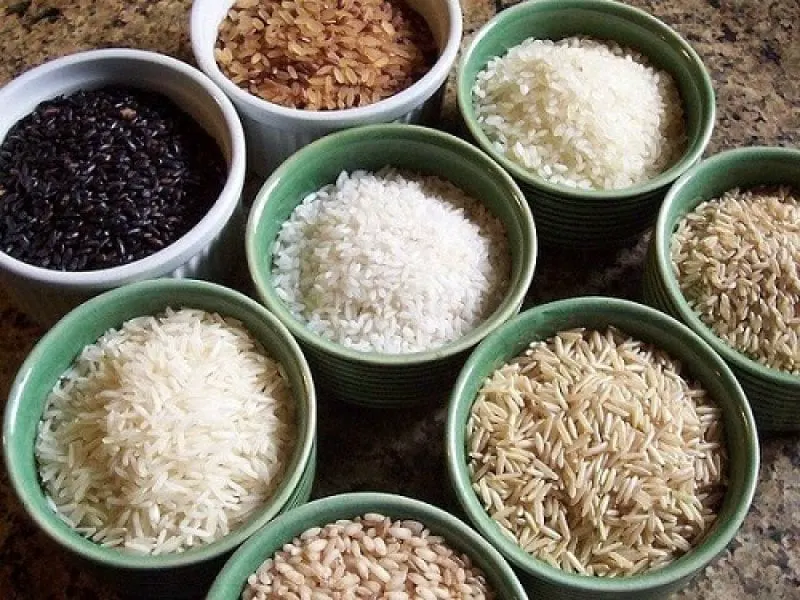GMO rice in development could be the next revolutionary treatment for high blood pressure
GMO rice in development could be the next revolutionary treatment for high blood pressure


In the future, taking your blood pressure medication could be as simple as eating a spoonful of rice. This “treatment” could also have fewer side effects than current blood pressure medicines. As a first step, researchers reporting in ACS’ Journal of Agricultural and Food Chemistry have made transgenic rice that contains several anti-hypertensive peptides. When given to hypertensive rats, the rice lowered their blood pressure.
High blood pressure, also known as hypertension, is a major risk factor for cardiovascular disease and stroke. A common class of synthetic drugs used to treat hypertension, called ACE inhibitors, target the angiotensin converting enzyme (ACE), which is involved in blood pressure regulation. However, ACE inhibitors often have unpleasant side effects, such as dry cough, headache, skin rashes and kidney impairment.
In contrast, natural ACE inhibitors found in some foods, including milk, eggs, fish, meat and plants, might have fewer side effects. But purifying large amounts of these ACE-inhibitory peptides from foods is expensive and time-consuming. Le Qing Qu and colleagues wanted to genetically modify rice — one of the world’s most commonly eaten foods — to produce a mixture of ACE-inhibitory peptides from other food sources.
The researchers introduced a gene to rice plants that consisted of nine ACE-inhibitory peptides and a blood-vessel-relaxing peptide linked together, and confirmed that the plants made high levels of the peptides. The researchers then extracted total protein (including the peptides) from the transgenic rice and administered them to rats. Two hours after treatment, hypertensive rats showed a reduction in blood pressure, while rats treated with wild-type rice proteins did not. Treatment of rats over a 5-week period with flour from the transgenic rice also reduced blood pressure, and this effect remained 1 week later.
The treated rats had no obvious side effects in terms of growth, development or blood biochemistry. If these peptides have the same effects in humans, a 150-pound adult would need to eat only about half a tablespoon of the special rice daily to prevent and treat hypertension, the researchers say.
Read the original post

 | Videos | More... |

Video: Nuclear energy will destroy us? Global warming is an existential threat? Chemicals are massacring bees? Donate to the Green Industrial Complex!
 | Bees & Pollinators | More... |

GLP podcast: Science journalism is a mess. Here’s how to fix it

Mosquito massacre: Can we safely tackle malaria with a CRISPR gene drive?

Are we facing an ‘Insect Apocalypse’ caused by ‘intensive, industrial’ farming and agricultural chemicals? The media say yes; Science says ‘no’
 | Infographics | More... |

Infographic: Global regulatory and health research agencies on whether glyphosate causes cancer
 | GMO FAQs | More... |

Why is there controversy over GMO foods but not GMO drugs?

How are GMOs labeled around the world?

How does genetic engineering differ from conventional breeding?
 | GLP Profiles | More... |

Alex Jones: Right-wing conspiracy theorist stokes fear of GMOs, pesticides to sell ‘health supplements’




 California, Washington, Oregon forge immunization alliance to safeguard vaccine access against federal undermining
California, Washington, Oregon forge immunization alliance to safeguard vaccine access against federal undermining Trust issues: What happens when therapists use ChatGPT?
Trust issues: What happens when therapists use ChatGPT? Fighting deforestation with CO2: Biotechnology breakthrough creates sustainable palm oil alternative for cosmetics
Fighting deforestation with CO2: Biotechnology breakthrough creates sustainable palm oil alternative for cosmetics Viewpoint — Fact checking MAHA mythmakers: How wellness influencers and RFK, Jr. undermine American science and health
Viewpoint — Fact checking MAHA mythmakers: How wellness influencers and RFK, Jr. undermine American science and health 30-year-old tomato line shows genetic resistance to devastating virus
30-year-old tomato line shows genetic resistance to devastating virus The free-range chicken dilemma: Better for birds, but with substantial costs
The free-range chicken dilemma: Better for birds, but with substantial costs Viewpoint: Video — Big Solar is gobbling up productive agricultural land and hurting farmers yet providing little energy or sustainabilty gains
Viewpoint: Video — Big Solar is gobbling up productive agricultural land and hurting farmers yet providing little energy or sustainabilty gains ‘You have to treat the brain first’:Rethinking chronic pain with Sanjay Gupta
‘You have to treat the brain first’:Rethinking chronic pain with Sanjay Gupta
